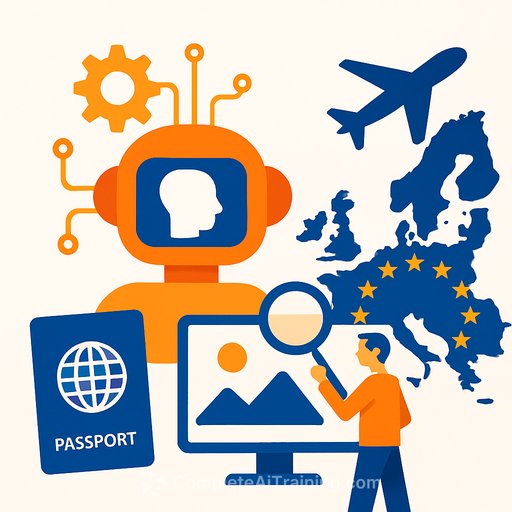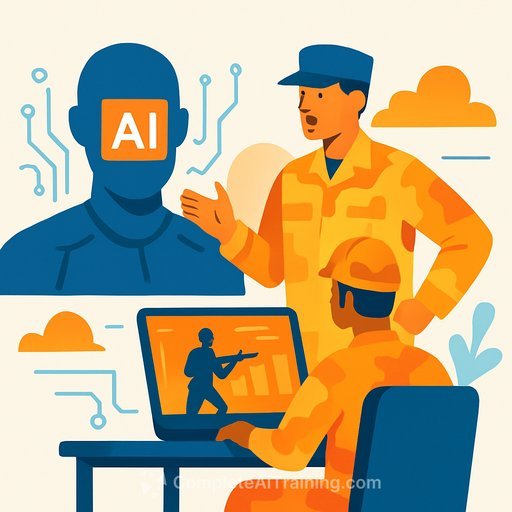AI is Transforming Europe’s National Tourism Organisations
Artificial intelligence (AI) is making a clear impact on Europe’s National Tourism Organisations (NTOs), changing how they manage travel marketing, research, and operations. A recent European Travel Commission (ETC) study shows that AI is already improving efficiency and insight in many NTO departments, though adoption levels vary widely.
NTOs are responsible for promoting tourism and managing millions of travel experiences. They’re beginning to test AI tools that streamline workflows, provide deeper data analysis, and open new opportunities. Despite enthusiasm, challenges remain in scaling AI due to differing readiness and expertise across organisations.
The Current State of AI in European Tourism
Most European NTOs are in the pilot phase of AI adoption, exploring tools rather than fully embedding them. Some destinations lead with early AI use, showing notable productivity gains. Many others focus on automated content creation, sentiment analysis, and data-driven marketing as entry points.
Marketing teams are often the first to use AI, automating tasks like copywriting and audience analysis. These AI applications have cut costs and boosted campaign effectiveness. Research teams, however, are slower to adapt, facing challenges around data quality, technical skills, and cautious adoption.
AI in Marketing: Clear Operational Benefits
Marketing departments benefit most immediately from AI. Automated content generation helps scale output without losing quality. AI also supports real-time campaign testing and optimization, improving response rates.
AI enables personalized marketing by analyzing tourist data to tailor communications. Predictive insights ensure travelers receive relevant offers based on their online behavior. This targeted approach increases conversions and reduces wasted effort.
Customer service has improved with AI-powered chatbots that provide instant support and recommendations. These tools handle common inquiries 24/7, boosting visitor satisfaction and loyalty without increasing staffing costs.
AI in Research: Progressing Cautiously
Research teams use AI mainly for tasks like social media sentiment analysis, translation, and transcription. These applications save time and reduce errors. Still, many researchers hesitate to fully commit due to concerns over data reliability and lack of clear implementation guidelines.
To integrate AI into research effectively, staff need targeted training and clear use cases. This will help them see how AI can enhance data collection and interpretation rather than replace human judgment.
Overcoming Adoption Barriers
The main barriers to AI adoption in NTOs include limited AI knowledge, lack of training, and unclear strategies. Many staff—especially in research—are unfamiliar with AI's potential, which slows progress.
Experts recommend role-specific upskilling and hands-on activities like hackathons and innovation workshops. These initiatives foster practical AI experience and build confidence.
Budget constraints also limit AI investments. A phased funding approach tied to pilot success helps allocate resources efficiently and justify further spending.
Practical Steps for Successful AI Integration
- Encourage experimentation: Allocate time and space for teams to test AI tools through workshops and hackathons.
- Prioritize targeted training: Focus on role-specific skill development and peer-to-peer learning to build AI literacy.
- Scale budgets based on outcomes: Fund AI initiatives incrementally, linking investment to measurable results.
- Focus on clear-value use cases: Start with AI applications that deliver quick wins, such as automated content creation and sentiment analysis.
The Future Role of AI in Tourism Operations
As AI technologies improve, they will enhance how NTOs analyze visitor data, predict trends, and tailor tourist services. This will lead to smoother travel experiences and smarter marketing strategies.
AI will increasingly support personalized recommendations and real-time engagement, helping NTOs respond quickly to changing traveler needs and preferences.
Conclusion
AI use in Europe’s National Tourism Organisations is growing but remains uneven. To gain full benefits, NTOs must prioritize practical experimentation, targeted training, and strategic resource allocation. This approach will improve operations, enhance the traveler experience, and keep tourism organisations competitive in a digital environment.
For operations professionals aiming to build AI skills, exploring targeted courses can provide valuable knowledge and tools to support AI initiatives within tourism or any sector. Resources like Complete AI Training’s job-specific courses offer practical guidance on applying AI tools effectively.
Your membership also unlocks:





